Business Industry Capital
|

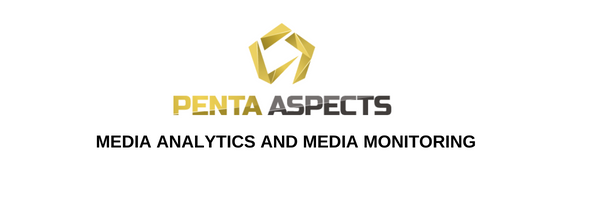

|
Bulgaria
|
|  | |
|
BNB Exchange Rates
(23.01.2026) |
|---|
| |
GBP |
|
1.14650 |
|
| USD |
|
0.85430 |
| CHF |
|
1.07720 |
| EUR/USD |
|
1.1706* |
|
ECB exchange rate |
|
Basic Interest Rate |
| |
as of 01.12 |
|
1.81% |
|
|
|
 |
Financial news |
 |
Bulgaria's public debt at the end of the third quarter of last year, expressed as a share of gross domestic product, amounted to 28.4 percent, marking an increase both on a quarterly and annual basis, according to the latest Eurostat data. Compared to the second quarter of 2025, the indicator for Bulgaria increased by 2.1 percentage points, which is one of the largest quarterly increases among EU Member States. A larger increase on a quarterly basis was reported only in Luxembourg (2.6 percentage points). On an annual basis, compared to the third quarter of 2024, Bulgaria's public debt increased by 4.1 percentage points, which ranks it among the countries with the most pronounced increase in the EU. Greater growth for the period was reported in Romania (5.5 percentage points), Poland (5.0 percentage points) and Finland (4.7 percentage points). Despite the reported increase, Bulgaria remains among the countries with the lowest public debt in the European Union, along with Estonia (22.9 percent), Luxembourg (27.9 percent) and Denmark (29.7 percent). At the end of the third quarter of 2025, the public debt-to-GDP ratio in the euro area (comprising 20 countries - EA20) reached 88.5 percent, compared to 88.2 percent at the end of the previous quarter, and in the EU it increased to 82.1 percent from 81.9 percent. On an annual basis, the debt also increased - from 87.7 percent to 88.5 percent in the euro area and from 81.3 percent to 82.1 percent in the EU. If we also take the data for Bulgaria, (the euro area of 21 countries - EA21) the public debt of the currency union in the third quarter was 88.1 percent. The highest levels of government debt to GDP in the EU at the end of the third quarter of 2025 were reported in Greece (149.7 percent), Italy (137.8 percent), France (117.7 percent), Belgium (107.1 percent) and Spain (103.2 percent). Source: BTA
In accordance with the applicable Eurosystem framework and national legislation, the Bulgarian National Bank (BNB) publishes on its website a weekly balance sheet of the BNB. Along with the weekly balance sheet, the Bulgarian National Bank will publish on its website a monthly and annual balance sheet, as well as a statement of income and expenditure as of 31 December of the relevant year, after the expiry of the relevant reporting periods. According to the BNB Law, the BNB balance sheet reflects the state of the main assets and liabilities of the Bulgarian National Bank. Source: Focus agency
 |
Companies |
 |
Paradoxically, the highest price of water in Bulgaria is where the largest investments in the water supply network with the help of EU funds have been made - the districts of Silistra (3,298 euros/cubic meter), Razgrad (3,236 euros/cubic meter), Smolyan (3,150 euros/cubic meter) and Shumen (3,048 euros/cubic meter). In Northeastern Bulgaria (Ruse, Razgrad, Silistra, Dobrich, Shumen, Targovishte), in addition to investments in the network, the reason for the high cost of water is the high cost of electricity, because the water is pumped. The investments made have not led to a reduction in water loss in the network, and it remains a constant value of 60%. The data for the districts of Pernik, Shumen and Sliven are shocking, where over 80% of the water leaks out before reaching the taps. Of the water supply companies with over 51% state participation, the lowest price of water is in the Pazardzhik district - (1,604 euros/cubic meter) and in Blagoevgrad (1,856 euros/cubic meter). The two districts plus Kyustendil, Lovech, Montana and Razgrad are the only ones in which the state failed to unite all water supply companies under the umbrella of one operator. The policy of consolidating the sector, imposed with the mantra "one district, one water supply association and one water supply operator" with the aim of increasing efficiency through economies of scale, turned out not to work in our country and does not produce the expected results. The lowest price is for water supplied by municipal water supply companies. The price of water in the municipalities of Kresna (0.569 euros/cubic meter), Sapareva Banya (0.871 euros/cubic meter) and Bratsigovo (0.997 euros/cubic meter) is below one euro per cubic meter, despite the increase from January 1, 2026, according to KEWR data. If only the tariff for the supply of drinking water is taken into account, the price of water in Sofia (1.05 €/m³ excluding VAT) is more than three times higher than that in Athens and Madrid. The French company Veolia acquired the shares in Sofiyska Voda from the British United Utilities in 2010 and became the owner of the concession in the Bulgarian capital. The concession contract expired at the beginning of 2026, but before the end of the mandate of the capital's mayor Yordanka Fandakova, it was extended for another 8 years - until February 2034. In Bulgaria, concession is a dirty word and only Sofia's water is managed on this principle. There are also several private water and sewerage operators that are affiliated with enterprises, such as "Lukoil Neftochim" Burgas and "Information Carriers" AD, or serve resort complexes, such as "Water and Sewerage Golden Sands" OOD or "ACC" OOD - for a golf course and properties on the territory of the Balchik municipality. Bulgaria in recent years has also been trying to impose the Hungarian model, through the forceful consolidation of water and sewerage operators by the state. However, the National Association of Municipalities categorically opposes these attempts by the state. Since the 1990s, the European Commission has repeatedly tried to impose liberalization of water and sewerage services. European directives were introduced, which sparked transnational protests from unions and NGOs, such as "Right to Water". They declared themselves to defend access to water as a basic human right. Source: mediapool.bg
The former owner of the bus company "Union Ivkoni" Ivaylo Konstantinov received permission from the Commission for the Protection of Competition (CPC) for the purchase of the base of the Stara Zagora "Zara - E". Part of the upcoming deal are also its eight gas stations. The Stara Zagora fuel company "Zara - E" has been on the market for 35 years and owns the largest private oil base in Southern Bulgaria, and its manager Zhivodar Terziev was the chairman of the Bulgarian Oil and Gas Association. At the end of 2024, the company's business was blocked, as it found itself in the position of a fraudulent intermediary and became a victim of fraud with supplies supposedly directed to an American military base in Bulgaria. For several years, Konstantinov has been developing gas stations under the Avia brand, having 14 sites, as well as 5-6 terrains. The deal with the regional leader in Stara Zagora is between "Uni Energy", with majority owner Ivaylo Konstantinov, and is for independent sites - gas stations and a petroleum base, owned by "Zara - E", "Zara-Gaz", "Zara-Yug" and BT. The assets being sold are 8 gas stations and a ZARA petroleum base, located in the city of Stara Zagora, 6 "Industrialna" Street. It is located on a terrain of 60 acres and has a volume of 18 thousand tons for all types of fuels and until the beginning of last year it also had a tax warehouse license. "Zara - E" was established in 1994. The company is family-owned. It is a regional leader in the trade in petroleum products, and although it has a few gas stations, it works mainly in the wholesale segment. There are two tax warehouses from 2006 and 2016 (the second one east of Stara Zagora is half the size of the main one and is not the subject of the deal) and about 50 vehicles. For 2024, Zara - E's revenues are 204.5 million leva. At the end of 2024, however, Zara - E's work was blocked by the prosecutor's office, customs and the National Revenue Agency, after the company found itself in the position of a fraudulent intermediary and a victim of fictitious supplies to the US army. Zara - E's claim was that "in the period 2014 - 2024, the company was misled through prepared contracts and documents and the participation of outsiders that it was making supplies to the US army for the Novo Selo training ground", and months before the public disclosure of the case by the institutions, the owner himself signaled the American side and the prosecutor's office with details and documents on the subject in the hope of a more in-depth investigation. Atlantic Way is starting to build wooden prefabricated houses using innovative technology with the help of European funds. The company has its base in the industrial zone of the former Nitrogen Fertilizer Plant near Stara Zagora, where it now produces wooden pallets. Atlantic Way is among the few companies in Bulgaria that have achieved a 100% closed cycle in the field of wood processing - from the extraction of wood with its own transport through primary processing and the production of beams and boards to the use of waste by turning it into pellets. The Stara Zagora investor recently won financing for the construction of a modern industrial zone on the grounds of the former ATZ in Stara Zagora. The project is financed under the Regional Development Program 2021-2027 under the measure "Support for industrial and logistics parks and zones with a focus on the use of clean energy." Atlantic Way is a beneficiary of the project, and the company's partners are Ecomediana Recycling and the Municipality of Stara Zagora. The total value of the grant under the project is within 36 million leva, with Atlantic Way's grant being nearly 5.5 million leva. The company will modernize its existing building in the ATZ zone, build additional facilities, improve working conditions, and build a photovoltaic park and batteries for storing electricity. After the implementation of the project, the built-up area at the company's base near Stara Zagora will reach 5,000 sq m, accompanied by about 11 acres of adjacent terrain. Currently, the bases in Tvarditsa and Stara Zagora reach 10,000 sq. m of built-up area and about 40 acres of adjacent land with more than 40 vehicles, and the company provides bread to more than 130 people. Customers of the pallets produced here are large enterprises such as "Panchim", M+S Hydraulic, HES Yambol, Technogyps, Guala Closers, Preskov and others. The company has 40 pellet distributors in Bulgaria and strives to reach retail customers more successfully. In Tvarditsa, the annual production of pellets reaches 6,000 tons. The production of pallets in Stara Zagora reaches 300,000 units on an annual basis or 6,000 cubic meters of wood in wooden packaging. It will grow by 30% after the successful implementation of the project. divident.eu The Council of Ministers provided free of charge for the management of the State Enterprise "Port Infrastructure" a property - public state property, previously managed by the Ministry of Culture. The property is located on the island "St. St. Kirik and Julita" near Sozopol and has an area of 35,774 sq. m, including the buildings and hydrotechnical facilities on it. It was separated as an independent property after dividing a larger plot of land, for the purpose of building and maintaining a port facility - a pier for passenger ships and a breakwater. The Minister of Culture and the Director General of the State Enterprise "Port Infrastructure" must organize the transfer and acceptance of the property within one month. The Regional Governor of Burgas District should reflect the changes in the act of public state property. Source: Trud
"Soriko" Ltd from Nova Zagora is among the first private waste collection companies in Bulgaria with over 30 years of history behind it. Although it is not among the largest in the sector, it is positioned as one of the most complex - with activities along the entire waste management chain. The company's portfolio includes waste collection and waste transportation in over 100 settlements, management of regional landfills, production and installation of underground containers, complex waste management services, as well as consulting activities. Its headquarters are located in Nova Zagora, and part of the activities are separated into different companies, and a process of forming a holding structure is currently underway. The employees in the entire group are about 150 people, and the turnover for 2024 is over 20 million leva. "Soriko" operates along the entire waste management chain - from waste collection to planning the appropriate infrastructure. Its portfolio includes waste collection and transportation in over 100 settlements in Central, Southeastern and Northern Bulgaria, management of regional landfills, as well as complex services for municipalities and corporate clients. The company is a regular participant in waste collection tenders - alone and in associations. Currently, together with partners, it is participating in the blocked tender for one of the zones in Sofia. The company's largest international project is in Lebanon, where "Soriko" is participating in a procedure for comprehensive waste management. In partnership with a local company, "Soriko" wins one of the lots - in conditions of strong international competition and with criteria focused on experience and concept, and not on the lowest price, an approach that contrasts sharply with practices in Bulgaria. An essential part of "Soriko"'s activities is the production and implementation of underground containers - a model that the company introduced in Bulgaria back in 2010 in Nova Zagora, initially in partnership with a Portuguese manufacturer, and subsequently with its own production. The company is also the official representative of SOTKON for Bulgaria, with some of the systems being manufactured locally, while others are delivered as ready-made solutions. Underground containers have already been implemented in a number of Bulgarian cities, in tourist areas along the Black Sea coast, as well as in North Macedonia. One of the key projects at the moment is the development of waste management and tracking software. The platform will also have a user application through which citizens and companies can receive timely information - from regulatory changes to practical guidelines for recycling. The project is supported by a European innovation program. Recently, "Soriko" announced that they will join the "Perla" Industrial Park project in Nova Zagora. It will be built on the principle of public-private partnership with the participation of the Nova Zagora municipality and the companies "Milkotronic", "MDM Retail Property", "Soriko" and "Diev Invest". The project received 28 million leva from the "Regional Development" program. Source: mediapool.bg
The Bulgarian chain of stores Minimart, developed by "BGK" AD, announced the joining of Pavel Dlygonski as a new member of the board, responsible for the company's overall commercial and strategic marketing line. Since October 2025, he has held the position of Chief Commercial Officer and is responsible for key areas such as commercial policy (assortment, promotions, supplier management), format development and customer loyalty programs. The current structure of shareholders behind the company includes: Peter Dudolensky, Angel Angelov (AP Capital AD), Stoyan Kolev, Tencho Shikov (Trinity Retail EOOD), Elvin Gyri (RSTX Sarital), Rozen Khadzhiev (Profi Investments Ec.Ey), and Benelin Georgiev (SAF IHBECT 2 EOOD). The largest photovoltaic park in the Balkans will be located near Suhindol. The investment proposal received approval from the Regional Inspectorate for Environment, Water and Water - Veliko Tarnovo. The large-scale solar park is being built by the Austrian company "Wabi-sabi Alfa" Ltd., and the installation will cover a record 10,000 acres. The condition is that the investor must deposit a guarantee of 100,000 euros into the bank account of the eco-inspection within one day. The investment is worth 450 million euros. The decision to give the green light to the mega-project was met with a storm by opponents of the initiative. The civil association "You Decide" pointed out that the construction of the photovoltaic park affects thousands of acres of agricultural land and forest areas, including forests that are illegally included in the scope of the project. The decision will be appealed, and civil pressure will continue - both at the national and European levels, the organization's position also states. Source: Borba - Veliko Tarnovo
"Sopharma Buildings" REIT has concluded with "DSK Bank" AD a Standard Investment Loan Agreement in the amount of 28,121,000 euros, the special purpose vehicle announced. The document was signed on January 21. The loan will be used to finance/refinance, excluding VAT, expenses related to the acquisition and commissioning of "Residential buildings with shops, a kindergarten, underground garages and above-ground parking spaces - Stage I", under construction on its own land in Sofia, 3 Kliment Ohridski Blvd. The loan bears annual interest on regular principal, formed by a variable reference interest rate, representing a weighted average deposit index (WADI) plus an agreed premium of 3.5 percent. The drawdown period is until December 31, 2027, with a grace period on the principal until March 31, 2028 and a repayment deadline of December 31, 2028. On January 21, Sopharma Buildings concluded an annex to the Standard Investment Loan Agreement signed on December 4, 2024 between Sopharma Buildings and DSK Bank AD. This annex changes the amount of the annual interest on the regular principal of the loan, formed by a variable reference interest rate, representing a weighted average deposit index plus an agreed premium, as the agreed premium is reduced from 4.9% to 3.5%. Sopharma AD is the largest shareholder with 32.71% of the capital. Source: Banker
|
|
Investments
|
|  |
|
|
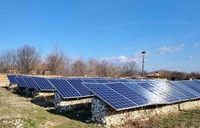 |
 Municipalities: Chirpan, Bratya Daskalovi, Brezovo, Panagyurishte, and Parvomay Municipalities: Chirpan, Bratya Daskalovi, Brezovo, Panagyurishte, and Parvomay
Total area: about 40 decares of owned land in the regions of Plovdiv and Stara Zagora, 29 installed PV plants, each with a capacity of 29,700 Wp, 3 additional properties with development potential
|
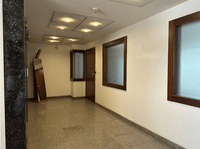 |
 Sofia Center Sofia Center
500 sq.m, functionally distributed between open space area, private offices, meeting room, server room, and restroom
|
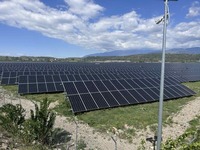 |
 Blagoevgrad Blagoevgrad
111 decares of owned land (in two adjacent plots of 55 decares each) at the entrance of the city from "Struma" highway
|
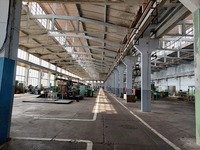 |
 Pleven Region Pleven Region
Total area 34 decares, 2 halls (total area 8510 sq.m) and admin. building (3 floors, GFA 2217 sq.m), operating business, good location, cranes for loading and unloading (lifting capacity 2x1 t, 3, 5, and 12 t), electrical connection - 110/20 kV with two underground 20 kV power lines, substation
|
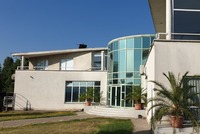 |
 Sofia Sofia
Operating enterprise with excellent financial results, 14.6 decares total area with excellent location, 3 halls (total area 1600 sq.m and height 11 m), cranes for loading and unloading activities (lifting capacity 13 t), admin. building (360 sq.m), warehouses and active store
|
|
|
Bulgarian Industrial Association
|
|  |
|
World
|
|  |
 |
Europe |
 |
Deutsche Boerse has agreed to acquire European fund distribution platform Allfunds for about 5.3 billion euros in cash and shares, Bloomberg reported. The German exchange operator has reached a deal to buy Allfunds for 8.80 euros per share. The deal consists of six euros in cash for each Allfunds share, 0.0122 Deutsche Boerse shares for each Allfunds share and a cash dividend of 0.29 euros per Allfunds share to be paid in May. In November, Deutsche Boerse said it had made a non-binding offer valuing Allfunds at about 8.80 euros per share and had entered into exclusive negotiations with the target company’s board of directors. More than two years ago, Allfunds was exploring private equity interest in acquiring it, but later withdrew from the talks because it believed the offers received did not fully reflect its growth prospects, Bloomberg News reported at the time. Deutsche Boerse, which has a market capitalization of nearly 40 billion euros, was considering a possible bid for Allfunds in 2020, Bloomberg News reported. Allfunds will hold an initial public offering next year. Euronext made an indicative offer of 5.5 billion euros in 2023 but ultimately withdrew it. Allfunds provides fund managers and distributors with trading and execution systems, data analytics and compliance services. The company managed assets worth 1.7 trillion euros at the end of September. Its software allows clients to view and trade various investment funds through a centralized platform, and also provides fund companies with reporting tools to track the funds’ assets and flows. Private equity firm Hellman & Friedman and French lender BNP Paribas own a combined 49 percent of Allfunds. Source: investor.bg
 |
America |
 |
Europe, especially Germany, has become too dependent on liquefied natural gas supplies from the US - making the region vulnerable to potential pressure from the US, given the ongoing confrontation over Greenland. This is what the German newspaper Nandezblatt writes, calling for a joint study by three European research institutes. In 2025, 92% of all liquefied natural gas exported to Germany will come from the United States. Rafael Piria, a senior research fellow at the Berlin-based research institute Esologis - which initiated the study - noted that the European Union has decided to abandon Russian gas and diversify its energy sources, but now relies (to a very) large extent on suppliers from one country - the USA.
 |
Asia |
 |
China's GDP growth rate in 2026 will be approximately 4.8 percent. This forecast was made by Yicai Global after an annual survey of leading Chinese economists. The consumer price index, a key indicator of inflation, is expected to increase by 0.5 percent, while the producer price index will decrease by 0.9 percent. Economists predict industrial production will grow by 5.1 percent, and total retail sales of consumer goods will increase by 4.1 percent. Analysts predict that China's trade surplus will increase by 4.8 percent to $1.25 trillion, with imports and exports increasing by 2.2 percent and 4.1 percent, respectively. In March, the Chinese government will announce official economic targets for 2026. By the end of 2025, China's economic growth rate is expected to reach 5% and GDP to be $20.01 trillion.
Source: Banker 
|
|
Indexes of Stock Exchanges
21.01.2026 |
| Dow Jones Industrial |
| 49 429.00 |
(104.00) |
| Nasdaq Composite |
| 23 436.00 |
(211.20) |
Commodity exchanges
21.01.2026 |
|---|
| |
Commodity |
Price |
|
| Light crude ($US/bbl.) | 59.69 |
| Heating oil ($US/gal.) | 2.3431 |
| Natural gas ($US/mmbtu) | 3.4668 |
| Unleaded gas ($US/gal.) | 1.8393 |
| Gold ($US/Troy Oz.) | 4 957.23 |
| Silver ($US/Troy Oz.) | 98.90 |
| Platinum ($US/Troy Oz.) | 2 649.97 |
| Hogs (cents/lb.) | 87.68 |
| Live cattle (cents/lb.) | 215.58 |
|
|
 |
Iliya Beshkov (1901-1958) |
 |

Iliya Beshkov is one of the most remarkable Bulgarian artists from the early years of the 20th century. He worked mainly in the field of the visual arts - Painting and Graphics, as well as as a writer and a pedagogue. He was born on 24th July, 1901 in Dolni Dabnik. After graduating from highschool in Pleven, he studies in the Law faculty of Sofia University "St. Kliment Ohridski". He returns to Plovdiv for a short time as a teacher. In 1921 he starts studying painting in the Art Academy, in prof. Nicola Marinov's class, graduating in 1926. Beshkov works with a number of publishing houses, newspapers and magazines, publishing more than 60 books. From 1945 he teaches painting, illustation and design of the book in the Academy. In 1953 he becomes a professor and leads department 'Graphic' until his death. He dies on 23rd January, 1958. The Art gallery in Plovdiv bears his name. The gallery has preserved more than 1200 of his works - the biggest collection in the national art museum with great value. (Photo: www.pleven.bg)
|
Archive
Business Industry Capital |
|

 Last Issue
Last Issue

 Subscribe NOW!
Subscribe NOW!

 Analyses
Analyses

 Discover Bulgaria
Discover Bulgaria
 Български
Български

 Archive
Archive
 Last Issue
Last Issue

 Subscribe NOW!
Subscribe NOW!

 Analyses
Analyses

 Discover Bulgaria
Discover Bulgaria
 Български
Български

 Archive
Archive